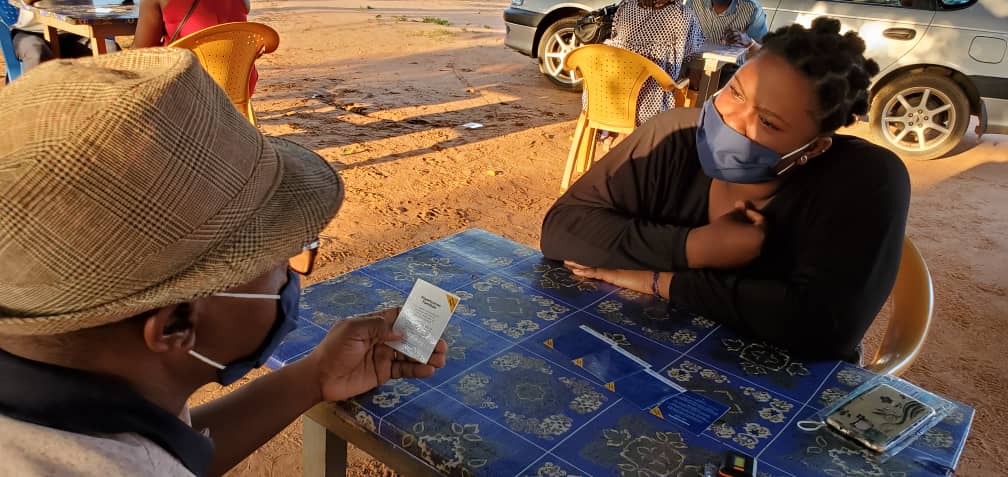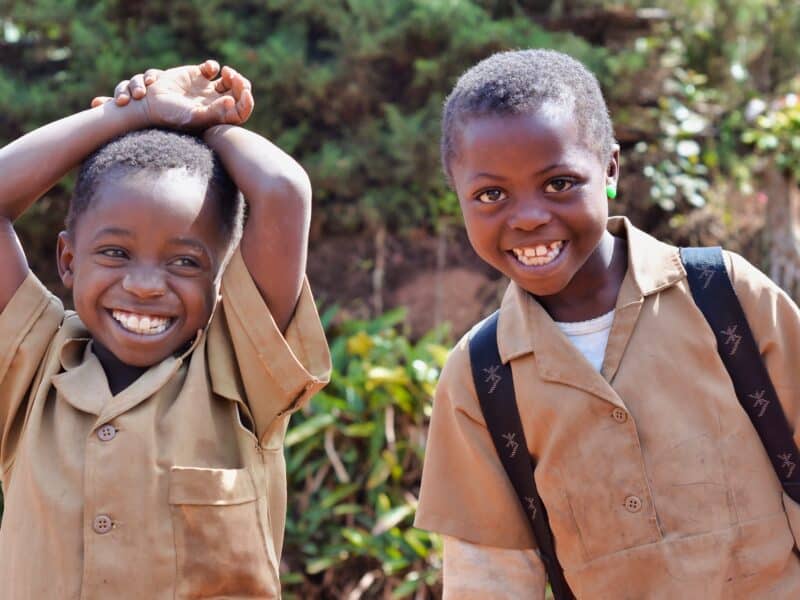A major barrier to young people’s access and use of family planning is mistrust. Clients are afraid that they will be judged and that their personal information won’t be kept confidential. Providers often have biases that keep them from counseling young people about family planning methods because they perceive women to be too young or because they are unmarried or don’t have any children yet.
The new Empathways tool, created by the Johns Hopkins Center for Communication Programs-led Breakthrough ACTION project, is designed to lead providers and young potential clients through a process that addresses this barrier by fostering empathy to improve family planning service delivery. The objective is to forge greater understanding of young clients among providers through a series of dynamic discussions.
The tool, a deck of cards with questions and scenarios aimed at stimulating discussions that may have nothing to do with family planning, is meant to be used one-on-one, with provider and young person sitting eye-to-eye and really opening up to one another – even before the true work of family planning counseling begins.
“In many contexts, young people do not feel comfortable expressing themselves to counselors they don’t know, and young people often feel like they can’t advocate for themselves in the counseling room,” says CCP’s Erin Portillo, a senior program officer overseeing the Empathways activities.
“By using these questions, it just might encourage providers to see their young clients in a new light: as real people, living real lives, with real struggles and potential — just like any other client who walks through their doors. The family planning experience can be far more successful if everyone understands one another better.”
Empathways is a journey from simple questions such as where did you grow up or what inspires you to talking about positive health care experiences or who the young person has spoken to about sex in the past. The first card in the deck is a confidentiality pledge that the young person and the provider read to one another to establish trust for what’s ahead. The final card asks providers to connect what they’ve learned throughout their exchange with the young person that day, and to make a pledge of what they will do to improve the family planning services they provide to young clients.
Ultimately, these sessions set the framework for connecting over real-life scenarios and discussing how people may feel or who they go to for support.
The Breakthrough ACTION team tested a reduced, tailored version of the card deck in Côte d’Ivoire with 15 young people and 15 providers in March 2021. This smaller deck allowed the team to use Empathways in two- to three-hour standalone discussions rather than as a half- or full-day exercise integrated into a larger provider training as originally designed.
Overall, the results were extremely encouraging. All participants said Empathways was unique, and that they would use the tool again. Multiple providers asked for a copy of the deck to take back to their own health centers. Facilitators told Portillo that the participants of different generations were chatting with one another during tea breaks and even exchanging phone numbers.
Currently, the tool is being piloted among providers and youth by CCP in Kenya and Liberia. In West Africa, it has been adapted for use with young people and adult community members in conjunction with the Merci Mon Héros campaign which is meant to improve community support for youth FP access. In Nigeria, Jhpiego has adapted the tool for use in its HIV work to improve access to medications designed to prevent infections. Programs in more countries have also expressed interest in trying the tool.
Participants in pilot programs in several countries praised the activity.
“[Open conversation] is something to be encouraged,” said a 23-year-old woman named Sofia, who used an adapted version of the tool with adult community members in Niger. “It allows young people to talk with adults, to see their perceptions, since we have different perceptions of life, to see how they see us and also, I commit myself to be more open with my parents even if it is the parents’ responsibility to approach the children.”
Said a participant in Burkina Faso: “The Empathways game allows participants to rediscover and know themselves better and to project themselves into the future.”
A web-based version of Empathways, complete with downloadable decks for in-country printing, is available on Breakthrough ACTION’s website in English and French.
“When you are sitting human being to human being and having these connections, it can really break down barriers,” Portillo says. “These opportunities are often missed under heavy caseloads and other challenges. This emphasis on empathy allows people to step outside of their roles and see everything from a new perspective.”





